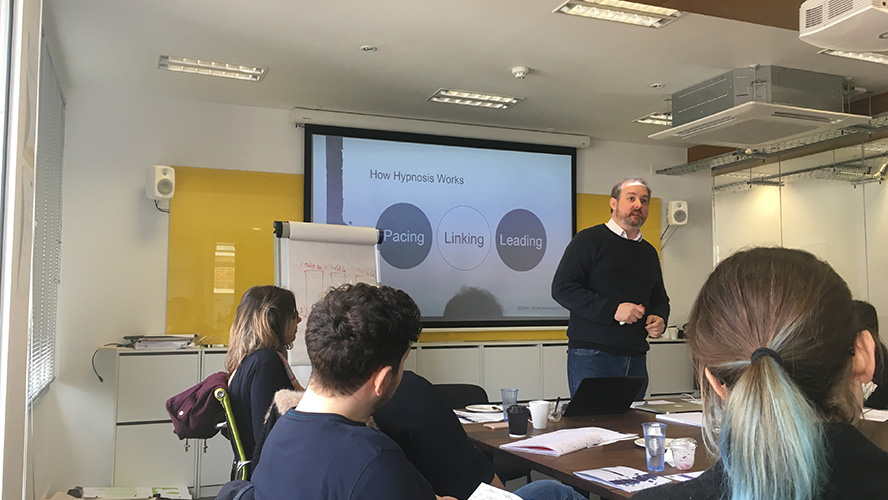#writerscrawl2018 - Words are experiences
20 Mar 2018

Writing shouldn’t be about getting words onto a page. It should be about getting readers to experience what you’ve written.
That’s what Lab’s director of human technology Daryll Scott urged at the Words are Experiences workshop at DMA House as part of #writerscrawl2018.
A 12-year break from agency work taken to master hypnotism gave Scott a new perspective on language and words.
“I wish I knew this when I ran an agency,” he confessed.
We use words to label everything and when our brain processes a word, it automatically conjures a sensory association.
“Our world is visual information,” Scott says. “It’s auditory information, it’s kinaesthetic, it’s olfactory, it’s gustatory. Everything we experience is that, and therefore our language can only ever be a reflection of that information. All words have an experience attached to them.”
Because our association to language is experience-driven, “It’s your unconscious that’s running the show,” he explains. “By the time you consciously decide anything, you’ve already unconsciously decided.” Your brain has already decrypted the language used and responded based on its own interpretation of the words.
Therefore, your words are bound to have different meaning to different people.
How do we tackle this as writers?
“The currency of argument isn’t influence, it’s agreement,” Scott explains.
“You want to get someone on your side and in agreement with you. That gives them the subconscious reasoning they need to follow a directive.”
To trigger an agreement you need facts - words that are interpreted similarly by everyone.
“By creating a level of agreement, we can be even more directive than we could normally be.”
But this gets boring. The chair is wooden. The window is glass.
That’s where Scott’s ‘delicious adjectives’ come in. Take something recognisable and just disrupt it, he instructs.
Using adjectives that are not congruous to what you’re describing causes disruption, and that’s where our experience-driven language processing pays off.
His mantra for writers is: “What did you see? What did you hear? What did you feel?” Ask this of your writing and you’ve covered the kinaesthetic, auditory and visual processing styles.
“To become a more immersive writer, it’s about leaning away from your own preference and engaging with everyone. Mix up your adjectives when you write, because the more you colour in, the more you fill in those noises and the more people feel, the more you can connect with [your audience].”
To find out more about #writerscrawl2018 events, click here.
Please login to comment.
Comments